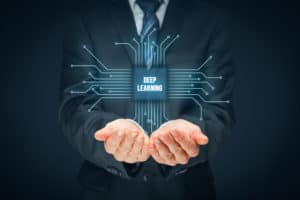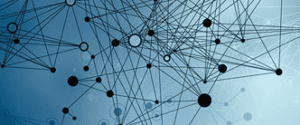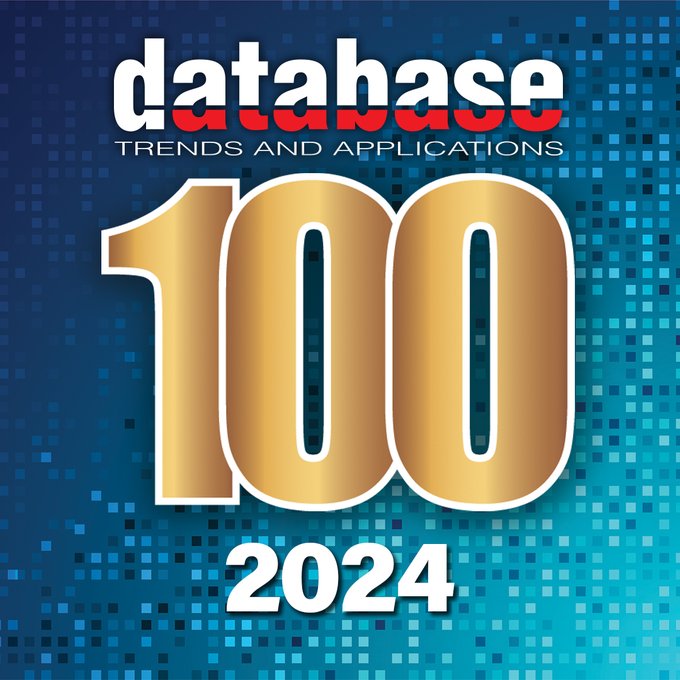
- 6 June, 2018
How AI Boosts Human Expertise at Wolters Kluwer

(1Casimiro/Shutterstock)
On balance, there will be some jobs lost to artificial intelligence, and you can also expect AI to create other jobs. But at the global information services company Wolters Kluwer, AI is being infused into expert systems in a bid to augment lawyers, accountants, and other professionals with superior decision-making abilities.
Wolters Kluwer is a €4.3-billion Dutch firm that provides knowledge management software and services to companies in the financial services, healthcare, tax and accounting, and legal arenas. The 180-year-old company originally encapsulated its knowledge and recommendations for specific professional domains in books, but today it has largely made the transition to digital technologies.
Thousands of companies around the world rely on Wolters Kluwer’s practice management software to automate core aspects of their businesses. That includes doctor’s offices that use its software make healthcare decisions in a clinical setting, corporate law offices that use its software to understand M&A activities, and accounting firms that use its software to craft tax strategies for high net-worth clients.
The dispensation of expert advice has always been Wolters Kluwer’s business model, whether through books stuffed with actuarial tables or through hand-written rules carefully coded into its software. So it’s no surprise that the company today is turning to powerful AI technology to take its expert systems to the next level.
Wolters Kluwer’s CTO of Global Platforms, Greg Tatham, recently told Datanami that the company is adopting AI widely across all four areas of focus, including tax, financial, legal, healthcare.
“For us,” he said, ” it’s really all about taking subject matter expertise and merging that with things like natural language processing, machine learning, predictive analytics, augmented classification, image recognition, and knowledge modeling, and turning that into something that allows a computer-assisted analyze and act cycle.”
Embedded DL
Tatham, who worked with neural networks as a computer science student in the he late 80s and early 90s, has watched as neural networks evolved from an academic plaything into a powerful tool driving big impacts for business. “[Neural networks] were interesting at the time, but they were not useful computationally,” he said. “It’s been the explosion of massively available computing power that allows us to use deep learning in a practical manner.”

(Jirsak/Shutterstock)
Wolters Kluwer is embedding a range of AI capabilities – including deep learning and graph analytics — across multiple product lines. For example, its Legalview Bill Analyzer software helps to identify errors in legal bills sent from outside law firms to the corporate counsels of large companies. The typical recovery rate for people reviewing bills manually is 1% to 2%. By adding machine learning technology to the product the recovery rate jumps to 7% to 8%, which can translate into tens of millions of dollars.
“What we’re really interested in is achieving insights that today take a person to analyze and that are prohibitive computationally,” Tatham said. “But it’s not just applying machine learning to seeming. It’s really harnessing machines along with human expertise, not just in training but in providing structuring of rules, structuring of results and interpretation.”
Knowledge Graphs
Wolters Kluwer is using graph analytic techniques to accelerate the knowledge discovery process for its clients across various professions. The company has tapped Franz‘s AllegroGraph software to help it drive new navigational tools for helping customers find answers to their questions.
“If I’m a client of Wolters Kluwer and I’ve got some client who has an issue — whether that’s a patient sitting in front of me who’s displaying some kind of symptoms or a complex high net-worth individual for whom I need to figure out an optimized tax strategy or an M&A activity that I’m going through to figure out the legal consequences — I know all about my problem,” Tatham said. “I know my context. And sometimes I know what I’m looking for. Sometimes I don’t. But what I really don’t know is how to get there.”
By arranging known facts and concepts as triples in the AllegroGraph database and then exposing those structures to users through a traditional search engine dialog box, Wolters Kluwer is able to surface related insights in a much more interactive manner.
“We’re providing this live feedback. As you’re typing, we’re providing question and suggestions for you live,” Tatham said. “AllegroGraph gives us a performant way to be able to just work our  way through the whole knowledge model and come up with suggestion to the user in real time.”
way through the whole knowledge model and come up with suggestion to the user in real time.”
To the user, it works somewhat like Google‘s eponymous search engine, which uses machine learning algorithms to discern statistically significant patterns in words and groups of words. Wolters Kluwer uses those traditional search engine techniques, but the Franz technology lets it go beyond that.
“The real different here is most of this is not statistical, it’s curated editorial information,” Tatham said. “That’s really what we’re using AllegroGrpah for. We have tons of information that historically has been locked away in places that are not easy to access, things in databases, spreadsheets, tabular data that exist in documents. And by using triples, we represent this context and turn it into triples, we’re able to change the content from being a cell in a table to being an answer described by these different dimensions that represent different facets of information about that cell.”
In that manner, Wolters Kluwer is able to utilize the power of AI to super-charge access to the hard-won knowledge that human workers have gathered over decades, even centuries. That’s deep domain expertise that can’t be created by AI, but AI can make that knowledge more accessible, Tatham said.
Humans + AI = Value
![]() By infusing its software with AI, Wolters Kluwer is helping human experts “move up the value chain,” said Sandeep Sacheti, an executive vice president with Wolters Kluwer Governance Risk & Compliance business.
By infusing its software with AI, Wolters Kluwer is helping human experts “move up the value chain,” said Sandeep Sacheti, an executive vice president with Wolters Kluwer Governance Risk & Compliance business.
“It’s not an either-or. It’s never going to be, in my mind, a replacement for our experts,” Sacheti said in a conversation about AI with the company’s CEO and executive chairman, Nancy McKinstry, that was posted to the company’s website. “If you take out that mundane, repeatable, the unsexy part of the data life, and apply RPA [robotic process automation] to automate some of those…it makes our jobs that much more exciting.”
Wolters Kluwer encourage experimentation with AI, but in a controlled way, McKinstry said. “A lot of what we do at Wolters Kluwer is absorbing a huge amount of content and making it understandable for our customers. AI can help us do that.”
However, that doesn’t meant that AI will replace humans. Instead, McKinstry is adamant that AI will augment people and free them to spend time on better things. “We’re not looking for AI to replace the human expertise that we have,” she said. “The secret here is bringing science and art together and really finding the pain points, versus thinking it’s going to be a panacea, which of course it’s not.”







